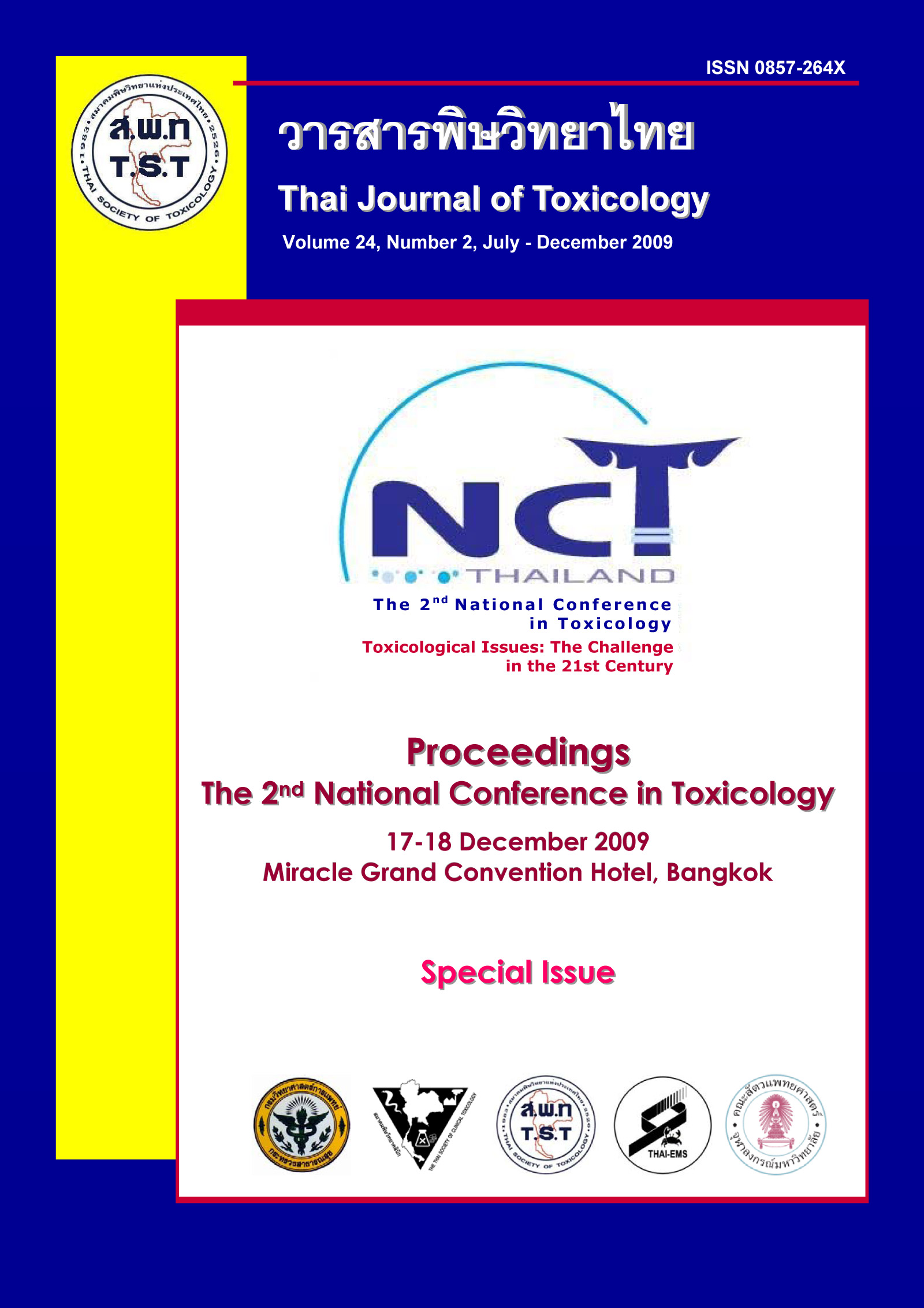DNA Extraction from Buccal Cells for Determination of Nucleotide Polymorphism at rs 1800497 Position in Dopamine D2 Receptor Gene
Main Article Content
Abstract
Substance use disorder is influenced by complex genetic and environmental factors. Many studies found that genetics may play an important role in the development of alcohol dependence. Twin and family history studies revealed that genetics affect a heritability of alcoholism approximately 50-60%. The neurotransmitter in brain especially dopamine may associate with rewarding system that might increase risk in alcohol dependence. The dopamine D2 receptor gene (DRD2) allelic status may influence on development of alcohol dependence due to the change in number of receptor. This study aimed to demonstrate that buccal cells could be used as an alternative source of DNA for PCR-RFLP based method to determine the allelic status of DRD2. The DNA samples were extracted from buccal cells using proteinase K and 5% chelex solution, then amplified by PCR method with some modification of the primer sequence. The optimization for annealing temperature was performed. Our PCR system using an annealing temperature at 56 oC yielded the most specific amplified DNA of approximately 200 ng/μl. The PCR product was digested with TaqI restriction enzyme at 65 oC overnight. The digested product was separated in 8.5% polyacrylamide gel elctrophoresis for genotyping.


